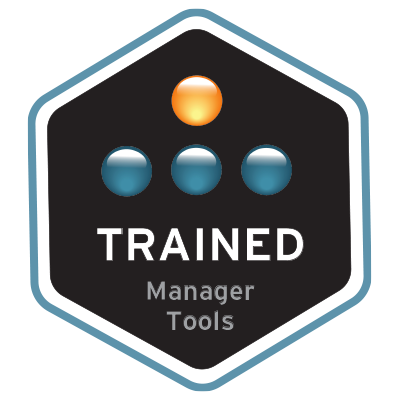


in
Forums
BLUF: How can one identify traits early in working with an employee that would lead to a high caliber manager material?
I've read the following recently http://moz.com/rand/if-management-is-the-only-way-up-were-all-fd/ and it got me thinking. Historically I've looked at management as a set of disciplines not anything magical about being a manager. Additionally I've tended to promote high potential individual contributors because they show the ability to execute and lead and if they can exercise the discipline of management then they'll be a good manager. However, there seems to be people (and maybe dark corners of my brain) that suggest that mediocre individual contributors might make good managers, and if so, how do you identify that early?
Thoughts?



There's only one thing that's needed...
... and that's the desire to do it, and do it well. If someone wants to be a good manager, then they'll learn how to do it well enough to be in the top 1% of managers as they exist today.
That's a bit of a cop-out answer, though, I know. I'm switching one hard problem ("how do I know if someone will be good manager?") for another ("how do I know if someone really wants to be a manager, as opposed to just craving the power?" ). When I was instituting the first layer of management under me, the way I picked out my managers, based on this method, was pretty simple: I described what the job would be, then I asked "who wants to do this job?", then I put everyone who said "yes" to the question through about 4-6 hours of training (one hour a week for six weeks), where I told people about the fundamentals of management, borrowing heavily from MT (From memory, the curriculum was "My Expectations of Managers" (a short introductory one), "Motivation" (the three types of power), "O3s", "Feedback", "Time Management", and "Effective Meetings"). The ones who took it seriously and worked hard got on my "will be a manager" list, and I took the best people from that list to be my initial team, and the alternates were there as "future leaders". Then the next time the real EMC was in town, anyone who still wanted to be a manager (or, by this time, already was) got sent.
This worked out pretty well, overall. There isn't too much I'd change about the initial rollout, although I'd do a lot more "hand-holding" (checking up on how things are going, etc) of people in the first six months after they were given a team, because I think there were some people feeling a little... hanging in the breeze. I didn't give people enough support. Oh well, next time, Gadget... next time.
If I were implementing this in a slightly larger organisation, with a less pressing need to get managers in place Right The Hell Now, I'd make the sort of training course I ran a pre-requisite for anyone who wanted to be a manager of any sort. It'd be run periodically, maybe starting 5 times a year (once every two months, except around the holidays), run for six weeks, and if you thought you might want to be a manager, it would be on your shoulders to arrange to attend. Anyone who got hired straight into a management position would be required to attend the next course being run as a condition of employment.
My working theory is that anyone who is willing to devote a few work hours to coming along and listening to me blather on in order to become a manager probably wants it enough to be able to learn the rest of the stuff as they go to be a really good manager (with help from you and Manager Tools). Conversely, anyone who couldn't be bothered to spend a bit of time to learn the fundamentals probably won't do the work required to learn how to do it well, even if they've "naturally" got the talents that would make them a good manager, if they wanted to do it.
Thanks Matt! You've given me
Thanks Matt! You've given me some ideas and some things to think about.
tim
So Matt, I've been
So Matt, I've been thinking about this and when you ask someone if they want to be a manager the idea of a "manager" is whatever is in their head. So someone who would be great (results and retention focused) may think they're not "manager material" because they have worked under a string of bad managers. Most managers we have had are bad ... Which shades our perception of management.
thoughts?
You could try If not you, who?
I once asked my team members who in the team they thought had leadership/manager material and WHY.
Their feedback turned out to be quite valuable input into the decision. I will note that the High Ds advocated for themselves and the high Ss overlooked themselves so make sure the instruction includes it is ok (and to be encouraged) to nominate yourself provided you also nominate someone else.
The resultant decision turned out to be a good one. 8 years later, he is still managing a team and doing very well.
kind regards
kev
Helping someone to see if they're "manager material"
I had a lot of success in getting less assertive people to step up by doing two things. Firstly, I didn't ask people to nominate others, it was specifically phrased as, "if you want to do this, you tell me". Secondly, I didn't ask, "who wants to be 'a manager'?". Instead, I described the role, and my expectations of it, and said "who thinks they might be interested in doing this job?". I chose those specific words deliberately, and I made sure to reinforce that with the rest of my message. All I was looking for was an expression of interest, not a formal job application. Everyone was quite clear that what they were signing up for was, essentially, an extended information session on what the job would be like, and they were under no obligation to take the job. Everyone knew me well enough to know that if someone said, "actually, I don't think this is for me", there wouldn't be any hard feelings.
I deliberately took anyone who showed an interest, from anywhere in the company, rather than just hand-picking the few people I thought showed the most promise. I took one person who'd only been with the company for two months, and another person who was quite up front about not being suitable for the role I was hiring for (lack of technical skills) but was interested in some of the stuff I was teaching. I like to think that took a bit of the pressure off, too. I will note that both the people mentioned above now lead teams, after some more company-wide restructuring.
I really like this
I really like this barrier-building idea. It doesn't even have to be that massive - it's amazing how many false positives you can weed out just by putting up a small barrier.
---
Rory
"Now bring me DISC profile 6-1-4-7, your time is up and your feedback's begun!"
Matt, I'm curious when
Matt,
I'm curious when you talk about "doing this job" what do you say? How do you describe the work of a manager? In your training/informational sessions what are you describing? The Trinity? Other?
Very interested.
Describe your expectations
The way I wrote the "job description" for my position was pretty much just to describe what I expected of them. I borrowed the fundamental tenets of the trinity ("you will build relationships with your team and across the organisation", "you will talk about performance to help your people improve", "you will give your people the support they need to learn new skills and grow", etc), as well as described the other aspects of the job, like taking escalated tickets from customers, that sort of thing. I wish I'd kept a copy of what I wrote after I left, I thought it was quite a nice piece of writing.
The training session "set" I developed had six elements:
I skipped delegation because the sort of job they were doing wasn't something most of their team members were interested in doing (most people wanted to remain on the technical track, rather than moving into the management track), so delegation would be of lesser importance -- I intended on covering it as required, later.
The introductory session gave my definition of leadership, and we discussed it a little, and I ran through my expectations from a somewhat different angle than what I wrote in the job description. It covered:
The last one got a few giggles, but I took the opportunity to explain that being a good manager is, at its core, about caring for other human beings and wanting them to succeed. It's the best way to avoid turning into a megalomaniac, and it illustrates a key point, that leadership is more about service than command. Yes, you get power, and you get perks, but you also get a huge chunk of responsibility to go along with it. Also, caring doesn't mean coddling, and some people may be best able to succeed somewhere else -- yes, you may have to fire someone.
The rest of the sessions were a bit more conventional. I prefer the socratic method, combined with lots of hands-on, practical, activities and discussion amongst the group. It also means I had to write up less material. (grin)